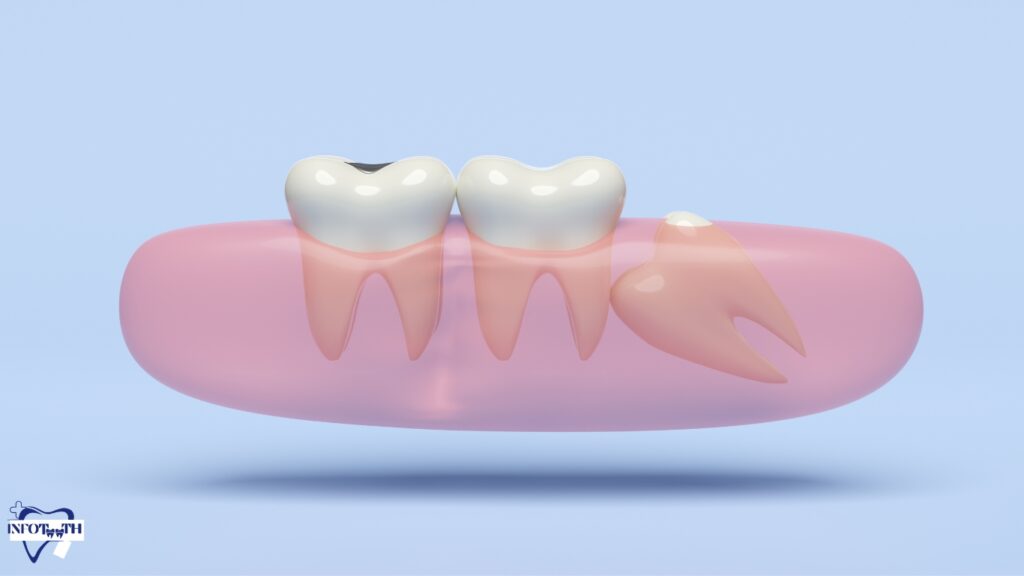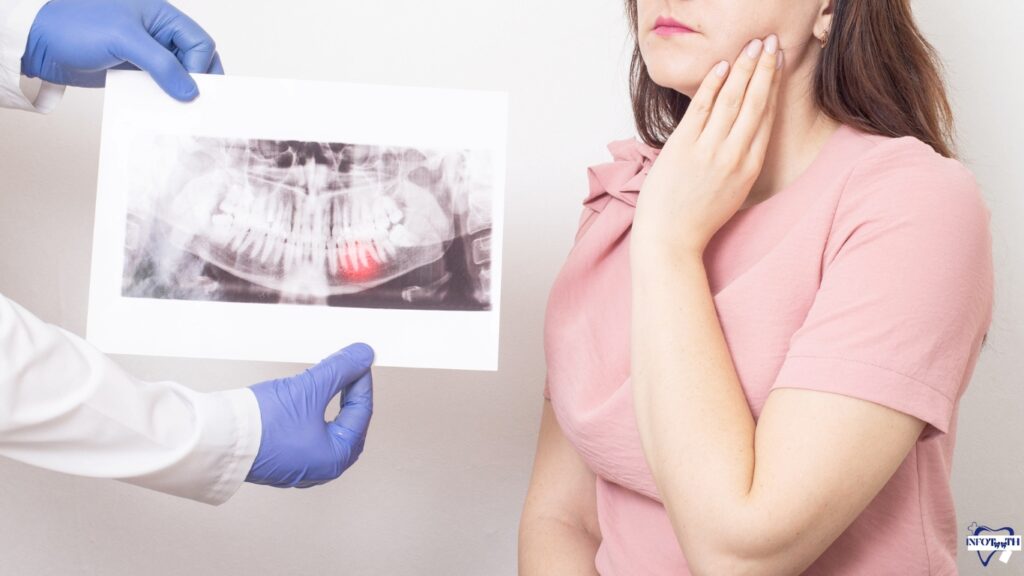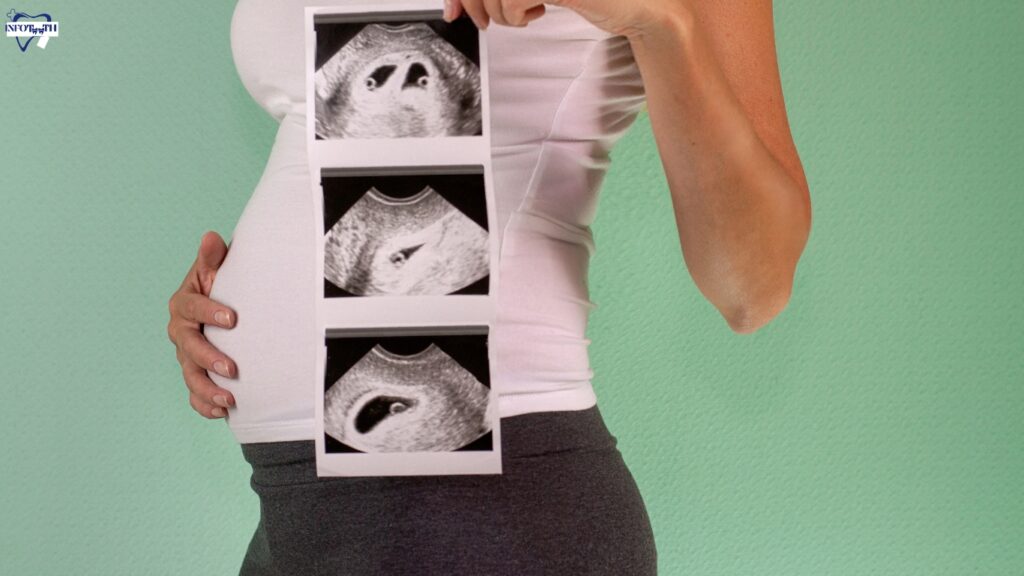“Can you have your wisdom teeth removed while pregnant? This question often arises among expecting mothers concerned about dental health and potential risks to their unborn child. While dental issues can worsen during pregnancy due to hormonal changes, the safety of wisdom teeth extraction during this delicate time is a matter of debate. Dentists may recommend postponing non-urgent procedures until after childbirth to minimize potential complications.
Table of Contents
However, in cases of severe pain or infection, careful assessment of risks and benefits with a healthcare provider is essential for informed decision-making.”
What are Wisdom Teeth?
Wisdom teeth, or third molars, are the final set that generally crop in the late teens or early twenties. These teeth were historically appertained to as” wisdom teeth” because they appear at a more mature age, presumably when a person has gained some wisdom. still, their emergence frequently accompanies pain, discomfort, and implicit dental issues.
Not everyone develops wisdom teeth, and those who do may not always crop duly aligned.” Can You have Your Wisdom Teeth Removed while Pregnant?” This misalignment can lead to impacted wisdom teeth, which fail to completely crop from the epoxies due to lack of space or being deposited at an angle. Impacted wisdom teeth can beget pain, infection, and damage to girding teeth.

As a result, many individuals undergo wisdom teeth extraction to prevent potential complications. Dentists typically monitor the development of wisdom teeth through X-rays and recommend extraction if they pose a risk to oral health. While wisdom teeth are a natural part of human dentition, their presence can sometimes necessitate intervention to maintain oral health.
What are the Causes Of Wisdom Teeth Removal?
“Can You have Your Wisdom Teeth Removed while Pregnant?” is a complex decision that involves balancing the implicit pitfalls to the mama and the developing fetus. While it’s generally recommended to avoid optional dental procedures during gestation, there are situations where wisdom teeth junking may be necessary due to severe pain, infection, or other complications.
The primary concern with witnessing wisdom teeth junking during gestation is the implicit threat of complications, similar as increased bleeding and the goods of anesthesia on the fetus. The alternate trimester is frequently considered the safest time for dental procedures, as the threat of confinement is lower compared to the first trimester, and the threat of unseasonable labor is lower compared to the third trimester. still, indeed during the alternate trimester, preventives must be taken to minimize pitfalls to both the mama and the fetus.
One of the main causes of Can You have Your Wisdom Teeth Removed while Pregnant? is the development of complications similar as infection or impaction. Wisdom teeth, also known as third molars, frequently crop between the periods of 17 and 25, but they can beget problems latterly in life if they come impacted or don’t have enough room to erupt completely. Impacted wisdom teeth can lead to pain, swelling, infection, and damage to conterminous teeth.
In pregnant individualities, hormonal changes can complicate dental issues, making it more likely that wisdom teeth may need to be removed to palliate discomfort and help farther complications. Eventually, the decision to suffer wisdom teeth junking” Can You have Your Wisdom Teeth Removed while Pregnant?” should be made on a case- by- case base, taking into consideration the inflexibility of the dental issue, the stage of gestation, and the implicit pitfalls and benefits to both the mama and the fetus. Pregnant individualities must consult with their obstetrician and dentist to weigh these factors and make an informed decision.
How to Relieve Wisdom tooth pain while Pregnant?
Experiencing Can You have Your Wisdom Teeth Removed while Pregnant? can be particularly challenging due to the limitations on pain relief options and concerns about potential risks to the developing baby. While pregnant individuals may seek relief from the discomfort caused by erupting or impacting wisdom teeth, whether wisdom teeth can be safely removed during pregnancy arises.
Firstly, managing wisdom tooth pain during pregnancy involves gentle yet effective strategies. Rinsing the mouth with warm salt water several times daily can help alleviate pain and reduce inflammation. Applying a cold compress to the outside of the jaw for short intervals can also provide temporary relief. Additionally, over-the-counter pain relievers like acetaminophen are generally considered safe during pregnancy when taken as directed by a healthcare provider.
Regarding removing wisdom teeth while pregnant, dental and medical professionals’ consensus is to avoid elective procedures, including dental surgeries, during pregnancy if possible. This cautious approach is primarily due to concerns about potential risks to both the pregnant individual and the developing fetus, such as increased bleeding and the potential for adverse effects from anesthesia.

However, in cases of severe pain or infection that cannot be managed with conservative measures, dental treatment, including this question Can You have Your Wisdom Teeth Removed while Pregnant? may be necessary. In such situations, the pregnant individual must communicate closely with their dentist and obstetrician to weigh the risks and benefits and ensure appropriate precautions are taken to minimize any potential harm to the pregnancy.
Ultimately, while avoiding elective dental procedures during pregnancy is best, effective pain management and close collaboration with healthcare providers can help alleviate wisdom tooth pain while prioritizing the health and safety of the pregnant individual and their baby.
Can you be sedated for wisdom Teeth Removal while Pregnant?
“Can you have your wisdom teeth removed while pregnant?” is a common question among expectant mothers facing dental issues. The answer typically involves a careful evaluation of risks versus benefits, with the primary concern being the safety of both the mother and the developing fetus.
In general, elective dental procedures, including wisdom teeth removal, are often postponed until after pregnancy to minimize potential risks to the baby. However, there are situations where delaying treatment is not an option due to severe pain, infection, or other complications. In such cases, dental professionals may recommend extracting the wisdom teeth during pregnancy, typically during the second trimester when the risks are relatively lower compared to the first and third trimesters.
One of the main considerations when performing dental procedures in Can You have Your Wisdom Teeth Removed while Pregnant? is anesthesia and sedation. Local anesthesia, which numbs the specific treated area, is considered safe during pregnancy. However, sedation or general anesthesia may carry more significant risks and require careful consideration.
While there is limited data on the effects of sedation medications on the developing fetus, most dental professionals prefer to avoid sedation during pregnancy unless necessary. If sedation is deemed necessary for the wisdom teeth removal procedure, it’s crucial to consult with both the obstetrician and the oral surgeon to weigh the potential risks and benefits.
Ultimately, the decision to have wisdom teeth removed during pregnancy should be made on a case-by-case basis, considering the severity of the dental issue, the stage of pregnancy, and the overall health of the mother and the baby. Open communication between the patient, the obstetrician, and the dental provider is essential in ensuring the best possible outcome for both the mother and the baby.
What is Wisdom teeth removal while Pregnant First Trimester?
“Can you have your wisdom teeth removed while pregnant?” is a common question among expecting mothers, especially those in their first trimester. The dilemma arises from concerns about the safety of undergoing dental procedures during pregnancy and the potential risks to both the mother and the developing fetus.
While every pregnancy is unique and should be assessed on a case-by-case basis, wisdom teeth removal during the first trimester is generally not recommended unless necessary for the mother’s health and well-being. The first trimester is a critical period of fetal development, and any unnecessary medical interventions should be avoided to minimize potential harm.

Still, if a pregnant woman gets severe pain, infection, or other complications related to her wisdom teeth, it may be necessary to do with the junking procedure. In similar cases, the mama ‘s dentist and obstetrician will work together to weigh the pitfalls and benefits and insure the safest possible outgrowth for both mama and baby.
When we’re considering the question” Can You have Your Wisdom Teeth Removed while Pregnant?” factors similar as the type of anesthesia used, the stage of gestation, and the overall health of the mama and fetus must be precisely estimated. Original anesthesia is generally preferred over general anesthesia during gestation to minimize implicit pitfalls to the fetus.
Wisdom tooth extraction during Pregnancy Third Trimester
“Can you have your wisdom teeth removed while pregnant?” This question looms large for expecting mothers, especially those in their third trimester. The dilemma between dental health and pregnancy safety can be daunting. Wisdom tooth extraction during pregnancy, particularly in the third trimester, requires careful consideration and collaboration between the patient, obstetrician, and dentist.
The third trimester is a critical stage of fetal development, and any medical procedure during this time must prioritize the well-being of both the mother and the unborn child. While some dental procedures can be postponed until after childbirth, wisdom tooth extraction may become necessary due to pain, infection, or other complications.
However, the decision to undergo wisdom tooth extraction during pregnancy must weigh the risks and benefits. Potential risks include the use of anesthesia, which can affect the baby, as well as the risk of increased stress on the mother’s body during the procedure. Additionally, the positioning of the mother during the extraction may pose challenges due to the size of the uterus.
Consultation with an obstetrician and a dentist is crucial to assess the individual circumstances and determine the safest course of action. Sometimes, non-surgical management, such as antibiotics or pain management, may suffice until after delivery. If extraction is deemed necessary, it may be recommended to perform the procedure in the second trimester when fetal development is less vulnerable.
Will removing wisdom teeth during pregnancy harm the baby?
Can You have Your Wisdom Teeth Removed while Pregnant? Having a topic that raises concern among expectant mothers, primarily due to worries about potential harm to the baby. However, the decision to undergo wisdom tooth extraction while pregnant involves weighing the risks and benefits, and consulting with a dentist and an obstetrician is crucial.
Firstly, it’s essential to understand that pregnancy influences dental health. Hormonal changes during pregnancy can lead to gum inflammation and increased susceptibility to dental issues, including wisdom tooth problems such as impaction and infection. Ignoring these issues can exacerbate dental problems, potentially leading to complications that could affect both maternal and fetal health. However, the timing of wisdom tooth extraction during pregnancy is critical.

Dentists and obstetricians recommend postponing non-urgent dental procedures, including wisdom tooth removal, during the first trimester due to the fetus’s organ development during this sensitive period. The second trimester is often considered the safest time for dental procedures because the risk of miscarriage is lower, and organogenesis is complete. However, during the third trimester, the procedure becomes more challenging due to the patient’s positioning and increased discomfort.
Regarding the risk of harm to the baby, studies have not shown a direct link between wisdom tooth extraction and adverse pregnancy outcomes when performed under appropriate conditions. Local anesthesia and minimally invasive techniques are typically used to minimize risks to both the mother and the baby. Additionally, dentists may collaborate with obstetricians to ensure the procedure is conducted safely, taking into account the pregnant woman’s overall health and the stage of pregnancy.
Conclusion
In conclusion, deciding to remove your wisdom teeth “Can You have Your Wisdom Teeth Removed while Pregnant?” requires careful consideration and consultation with your dentist and obstetrician. While some dental procedures can be safely performed during pregnancy, the potential risks to both the mother and the fetus must be thoroughly assessed. Factors such as the pregnancy stage, the procedure’s necessity, and the mother’s overall health should be considered before proceeding with wisdom teeth removal during pregnancy.
FAQs
Q: Can you have your wisdom teeth removed while pregnant?
A: While avoiding elective dental procedures during pregnancy is generally recommended, wisdom teeth removal may be necessary in certain cases. Consult with your dentist and obstetrician to assess the risks and benefits based on your circumstances.
Q: What are the risks of having wisdom teeth removed during pregnancy?
A: Risks include potential complications from anesthesia, increased bleeding due to hormonal changes, and discomfort during recovery. Your healthcare providers will evaluate these risks and determine the safest action.
Q: At what stage of pregnancy is it safest to have wisdom teeth removed?
A: Ideally, dental procedures, including wisdom teeth removal, should be postponed until after the first trimester when the risk of fetal harm is lower. However, if urgent treatment is required, it may be performed with precautions during the second trimester.
Q: How can I manage wisdom teeth pain during pregnancy?
A: Non-pharmacological methods such as applying ice packs, using over-the-counter pain relievers approved by your obstetrician, and maintaining good oral hygiene can help alleviate discomfort. Consult with your dentist for personalized recommendations.
Q: Are there alternative treatments for wisdom teeth issues during pregnancy?
A: Depending on the severity of the problem, alternatives like antibiotics to control infection, temporary solutions to manage pain, and conservative dental treatments may be considered until it’s safer to undergo wisdom teeth removal postpartum. Always discuss treatment options thoroughly with your healthcare providers.
oval postpartum. Always discuss treatment options thoroughly with your healthcare providers.

